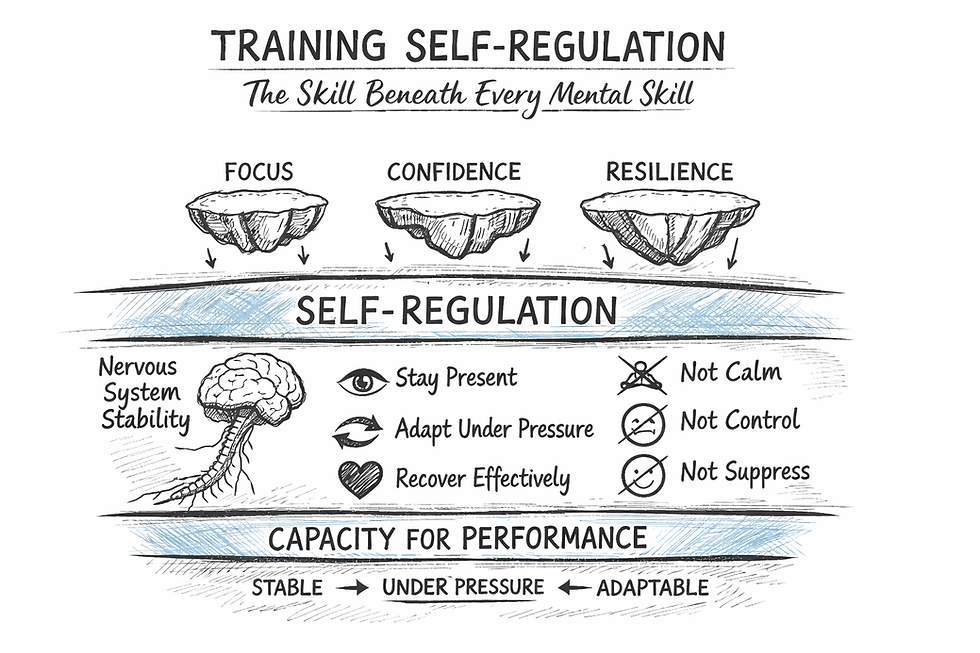3 Keys to Helping You Get Into the Zone
- Kate Allgood
- Jul 13, 2022
- 3 min read
Updated: Dec 18, 2023
Getting into the zone, as the flow state is often referred to in the world of sports, is a goal for most athletes. Dropping into a state where things feel effortless and you are completely dialed in, not only creates a higher level of performance, but also a sense of fulfillment and happiness. There are a. total of nine components that characterize this state:
Balance between challenge and skills
Immediate feedback
Clear goals
Complete concentration on the task
Transformation of time (speeding up/slowing down)
The experience is intrinsically rewarding
Merging of action and awareness so as the activity feels almost automatic
Loss of self consciousness (lack of self criticism)
Sense of control
Not all components need to exist to enter the zone, but the first three, which are considered conditions of flow, do need to exist, in order to set yourself up to experience the rest.

Conditions of getting into the zone
Challenge to skill ratio: In order to get into the zone in your sport performance, there needs to be a balance between the challenge and your perceived ability to take on the challenge. If these two elements don't match you won't get into the flow funnel. Often when working with athletes on their mental skills, to help them with this, we need to focus on the confidence they have with their skills to meet the challenge. If you have the skills but don't believe you do, you won't be able to get into the zone.
Immediate feedback: This is woven into the very nature of sports. The tighter the feedback loop the better, and in sports the feedback you get is often immediate. Since feedback is naturally apart of the equation in sports, how you take the feedback and what you do with it is important. Feedback is there to help you stay on track or get back on track. If you criticize yourself for the feedback you get, there is a chance you aren't able to simply adjust to help get back to where you need to. Feedback is just information, both positive and negative. Try to simply see it as such so that you can take it, and then find what you need to continue to do or change to help you.
Clear Goals: The important part here is clear. When the mind is charged with a clear goal, it becomes more focused, and the unimportant disregarded. Clear goals should be extremely specific so there is no room for interpretation. Focusing on what you can control will help. It is also important to get to the most detailed element of the goal. Going faster is too vague. Having a goal to move your feet more, or specific elements needed during a training sessions to help you ultimately get faster are getting more specific.
Getting into the zone is not just about feeling good
It is important to understand that getting into the zone is one stage in a four part cycle. There are natural ebbs and flows to performance, and if you always need things to look and feel good, then you will be in trouble. Sometimes you will struggle, sometimes you need a break, and then other times you need to recover. All aspects are apart of the flow experience.
To help with this it is important to cultivte a growth mindset. So when the time comes where things dont' look or feel great, you know you can dig deep and put in the work to improve, and eventually you will see the results, that sometimes feel like they won't come.
If you have questions or would like to know more about how we can help you get into the zone more often please contact us.
To your success,
Kate Allgood, Owner.
About: Kate Allgood is trained in the field of applied sport psychology. She holds two Masters degrees in psychology where she graduated with distinction. She has spent the past 14 years working one on one with high school, college, Olympic, and professional athletes to help them with their mindset, mental performance and mental skills training. Kate has also been a consultant for professional teams, including the Anaheim Ducks primary minor league affiliate the San Diego Gulls, to help the team and players develop their mental game. It is important to note that while Kate has graduate school training in applied sport psychology and general psychology, she does not diagnose or treat clinical disorders, and is not a licensed psychologist.
**The information provided is not to dispense medical advice or prescribe the use of any technique, either directly or indirectly, as a form of treatment for physical, emotional, or medical problems, without the advice of a physician. The information provided is only to offer information of a general nature to help you in your quest for high performance. If you know or suspect you have a health problem, it is recommended you seek your physician's advice.



Comments